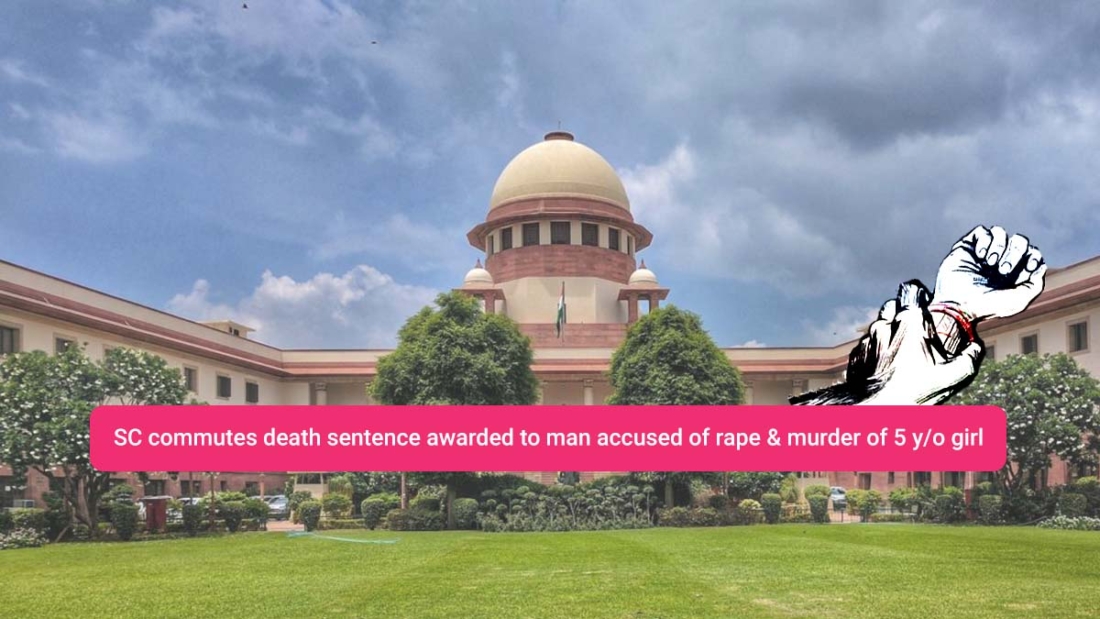A 3- Judge Bench comprising of Justices L Nageswara Rao, Sanjiv Khanna and B R Gavai in an appeal of Irappa Siddappa (“accused”) who was convicted and given the death penalty by a Trial Court observed that Low age of victims in rape-and-murder cases has not been considered as the “only or sufficient factor by this court” for imposing the death penalty.
In this case, the accused subjected a 5-year-old girl to rape, killed her by strangulation, and then disposed of her body by putting it into a gunny bag and throwing it into a stream.
The Trial Court had recorded that the death sentence was awarded on the ground that “the crime was committed in an extremely diabolical manner and that it was cruel, barbaric and revolting.” The High Court has noted that there are no mitigating circumstances at all.
Appellant’s counsel argued that the Trial Court merely noticed that the appellant was of young age (23 / 25 years) belonging to a very poor family but has not considered these as mitigating factors. The High Court has noted that there are no mitigating circumstances at all.
The State, on the other hand, brought to the Court’s notice that the data compiled by the National Crime Records Bureau shows that an average of 77 acts of rape were committed daily in India in the year 2020. The State, hence, defended the death sentence on the grounds that the actions of the appellant constitute a grave and uncommon crime endangering the moral fabric of the society. It was argued that the matter falls in the category of ‘rarest of the rare’ cases as the accused, under the pretext of giving biscuits, committed rape and murder of a five-year old girl, and threw her dead body into the stream. The deceased could not have provided resistance, much less provocation for the crime.
The Supreme Court, disagreeing with the observations of the Trial Court and the High Court, noted down the following mitigating factors that weighed against the imposition of death penalty, which is to be inflicted only in rarest of the rare cases:
- There is no material shown by the State to indicate that the accused cannot be reformed and is a continuing threat to the society. On the contrary, it can be seen from the Death Sentence Prisoner Nominal Roll dated 17th July 2017 issued by the Chief Superintendent, Central Prison, Belgaum, that the conduct of the accused in jail has been ‘satisfactory’ which reflects his desire to reform and take a humane turn.
- The young age of the appellant at the time of commission of the offence (23 / 25 years),
- His weak socio-economic background,
- Absence of any criminal antecedents,
- Non pre-meditated nature of the crime,
- The appellant has spent nearly 10 years 10 months in prison
- The State has not shown anything to prove the likelihood that the appellant would commit acts of violence as a continuing threat to society.
The Supreme Court remarked that,
“There is no doubt that the appellant has committed an abhorrent crime, and for this we believe that incarceration for life will serve as sufficient punishment and penitence for his actions, in the absence of any material to believe that if allowed to live he poses a grave and serious threat to the society, and the imprisonment for life in our opinion would also ward off any such threat. We believe that there is hope for reformation, rehabilitation, and thus the option of imprisonment for life is certainly not foreclosed and therefore acceptable.”
– Vaishali Jain, Advocate & Associate – Child Safety at Work
 Cart is empty
Cart is empty 

